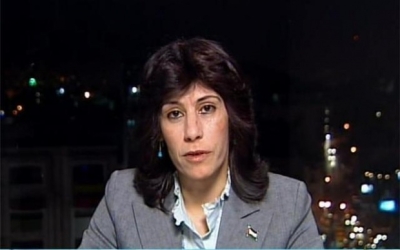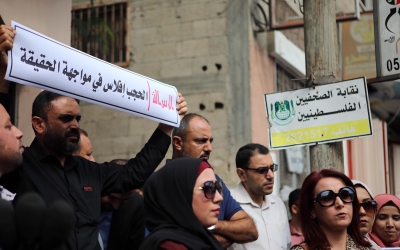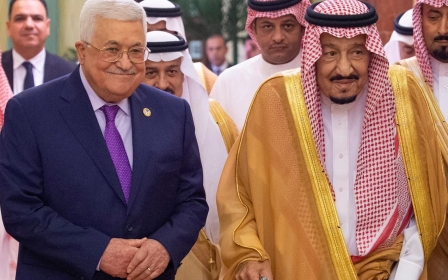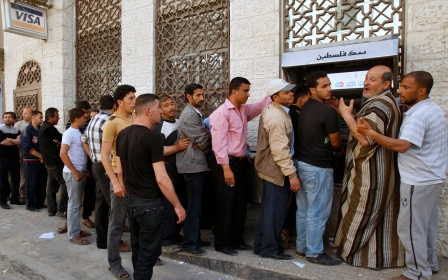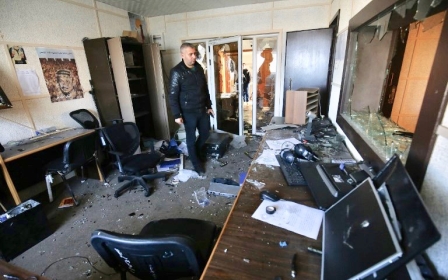Are Palestinian elections imminent? Don't count on it
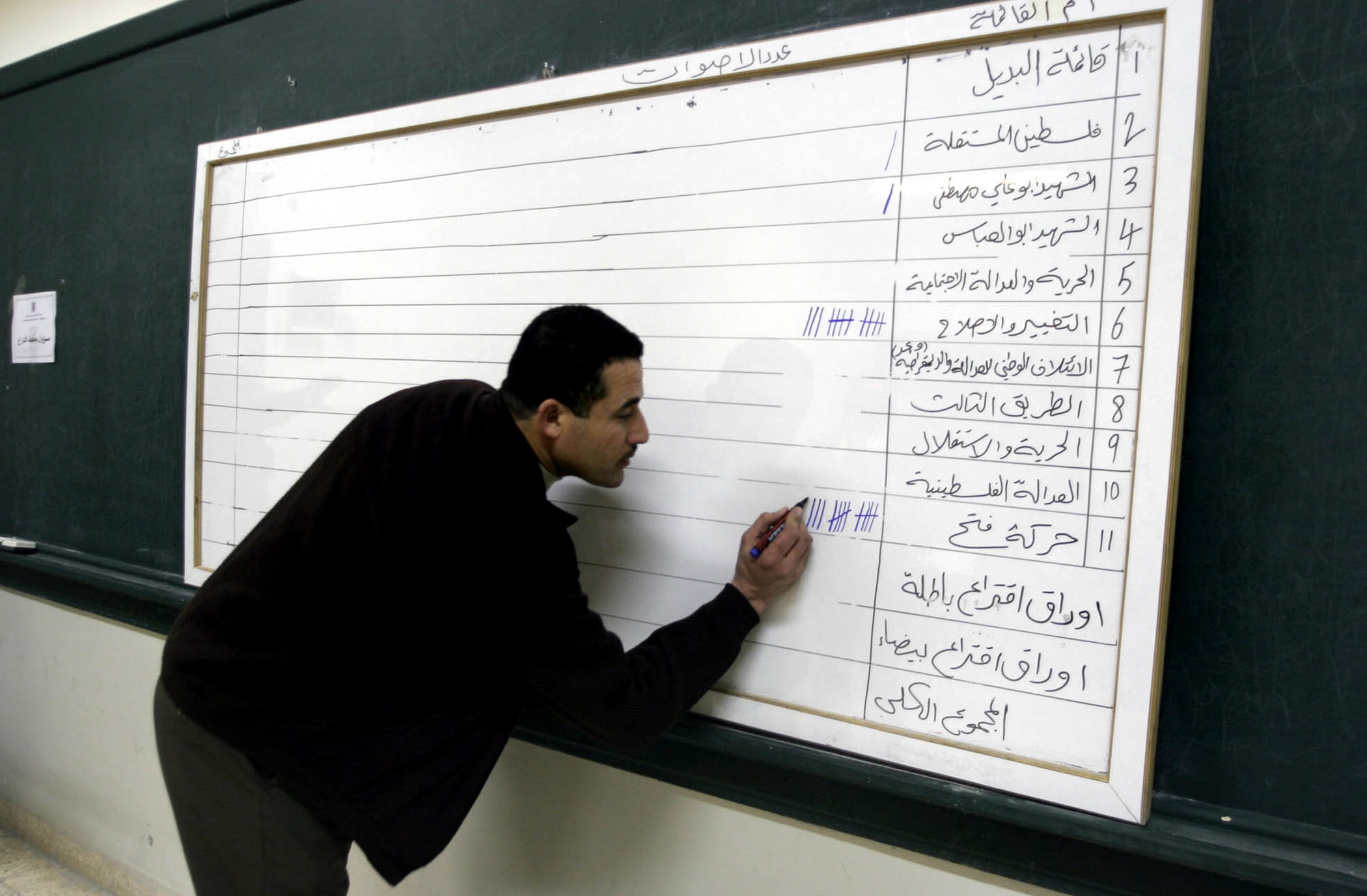
After weeks of talks and statements, the Central Elections Commission (CEC) on Wednesday announced that Palestinian political factions in the West Bank and Gaza Strip had agreed to go ahead with presidential and legislative elections.
Yet, it is hard to count the number of times such talk of a Palestinian election had been raised, only to fade after a few days.
This week's announcement could face the same fate, if the Palestinian Authority’s President Mahmoud Abbas doesn't issue an official decree laying out the timeline for an election.
The last Palestinian elections were held in 2006, when the Hamas movement that governs the Gaza Strip won the majority of the 132 seats in parliament.
Last month, Abbas, who is the head of the Fatah movement, invited his rival Hamas to hold an election during his speech at the United Nations General Assembly. Not a notable gesture, since he had previously issued similar invitations in many past speeches and news conferences, but never moved beyond words.
However, on 7 October, he instructed head of the CEC, Hanna Nasser, to start talks with Palestinian factions to discuss the possibility of holding an election.
Apparently they had agreed, with the CEC saying in a statement that legislative elections would be organised, followed by a presidential one 90 days later.
“A meeting will be held for the factions’ representatives to discuss the issues of maintaining good election conditions so all factions and citizens can participate in it,” the statement said.
Yahya Sinwar, the chief leader of Hamas, said on Tuesday that Hamas was “always ready" and would "make this election a tool to correct the strategic routes in our people’s history”.
Political manoeuvre
Since the 2006 parliamentary elections, Palestinian politics has largely been divided between Fatah, which controls the occupied West Bank through the PA, and Hamas, which seized the Gaza Strip in the clashes that followed the polls.
Abbas, Fatah and the PA have long faced criticism for clinging onto power without holding any elections. Abbas' four-year term was supposed to have ended in 2009, while MPs' mandates should have expired in 2010.
Adnan Abu Amer, a political analyst close to Hamas, told the Middle East Eye that Abbas’s statement was “an attempt to embarrass Hamas and portray it as the one who is refusing the election."
'There’s a feeling within the Palestinian leadership that it needs to renew its legitimacy'
- Ghassan Khatib, former PA minister
“Abbas is being tested after Hamas and all the factions agreed to hold an election. If he does not issue the election decree in the upcoming days, he would be the one jamming it,” said Abu Aamer, who is also the president of the political science department at Gaza's Umma University.
Ghassan Khatib, a former PA minister and member of the leftist Palestinian People’s Party, told MEE that “talks of political manoeuvres could be right”.
There are three core factors that have prompted talk of elections intermittently for the past 13 years, he explained.
First, it's the growing disconnect between the Palestinians and their leaders as time passes with no elections in sight.
“There’s a feeling within the Palestinian leadership that it needs to renew its legitimacy," Khatib said.
The second factor is the pressure from Palestinians, who feel that the “government's performance has fallen because of the absence of accountability and the absence of an election."
Third, Khatib said, the leadership knows that an election is an interest of European and Arab donor countries.
Despite having won the last parliamentary elections, the question of legitimacy lies over Hamas too, according to Abu Amer.
“Hamas wants to renew its legitimacy in the legislative council and the national council," Abu Amer said.
"But it knows that the route is not laid with tarmac, because it has no control in the West Bank, and it can’t supervise the election results and it suspects the PA will forge the election or use it for a coup d’etat,” he said.
Hamas and its ally Islamic Jihad are not part of the Palestinian Liberation Organisation (PLO), an umbrella group that Fatah was a core founder of in 1969. The PLO for years represented the Palestinians, and in 1993 it signed a peace agreement with Israel, which resulted in the establishment of the Palestinian Authority.
It would then be three years until the first elections for the Palestinian Legislative Council, effectively the parliament, were held. Neither Hamas nor Islamic Jihad took part, however, despite being on the political scene for nearly a decade and active players in the first Palestinian Intifada.
Ending political deadlock
Elections could be the tonic Palestinian politics needs to recover from its debilitating PA-Hamas fissure, Abu Amer said.
“All Palestinian factions need an election to change the faces of the political scene, pumping new blood into the Palestinian political arena and renewing the expired legitimacy of presidency and memberships,” he said.
In November 2017, a reconciliation deal between Fatah and Hamas was signed in Cairo in an attempt to end the political schism between the two sides, but it never fully materialised, with disputes over salaries and who had control over the crossings into the Strip rumbling on.
If this current election talk mimics that of previous years, Palestinian factions will agree on holding the election but then disagree on details, Khatib said.
“Hamas’s statements were for local media consumption. Hamas sees Fatah as not serious on the election topic, but as trying to make a political manoeuvre,” he said.
'All Palestinian factions need an election to change the faces of the political scene'
- Adnan Abu Amer, analyst
So far, Hamas' statements have generated little response from the PA, and Abbas has said nothing since the CEC-announced elections had been agreed on.
That hasn't elicited a great deal of optimism from Khatib, who expects that no vote will happen.
“It is a risky expectation, but I’m basing this on two things: first, the reconciliation deal should be implemented, so the election happens under one voting system in the West Bank and Gaza Strip," he said.
The second, Khatib added, was that the factions have to try and organise voting in Israeli-occupied Jerusalem.
"They are both hard to do, especially the first one,” Khatib said.
Despite that, Nasser, the head of the CEC, said after meeting Abbas this week that "we are very close to an election".
"The commission will renew the voting registry once a decree is issued. More than 80 percent of Palestinian citizens are registered to vote," Nasser said.
This article is available in French on Middle East Eye French edition.
Middle East Eye propose une couverture et une analyse indépendantes et incomparables du Moyen-Orient, de l’Afrique du Nord et d’autres régions du monde. Pour en savoir plus sur la reprise de ce contenu et les frais qui s’appliquent, veuillez remplir ce formulaire [en anglais]. Pour en savoir plus sur MEE, cliquez ici [en anglais].


